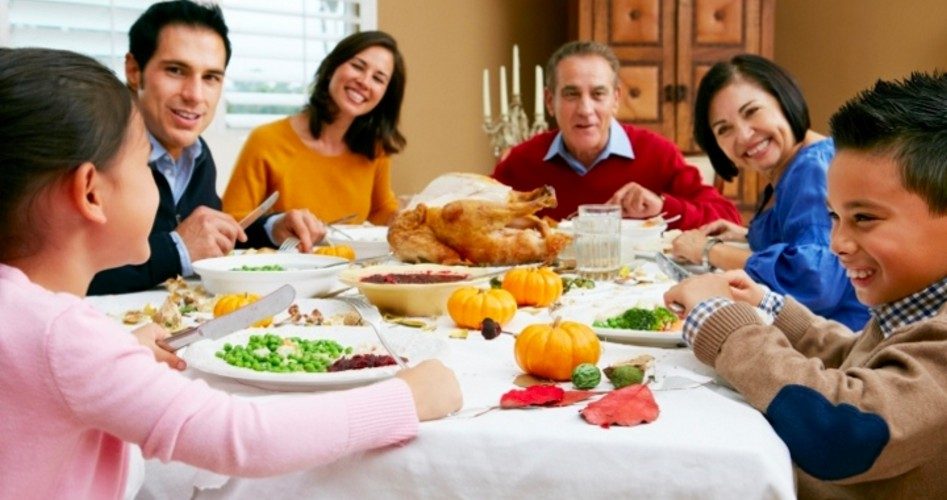
Although many holidays have broad international appeal, Thanksgiving — arguably America’s second-favorite holiday after Christmas — is celebrated only in the United States and Canada (Canadian Thanksgiving is the second Monday in October). What originated as a sort of harvest festival among British colonists in the New World has taken on a life of its own. No longer is Thanksgiving a mere celebration of the harvest (a ritual found in many cultures); it has become a symbol of the oft-neglected virtue of gratitude.
In hindsight, it is not surprising that a day consecrated to gratitude for the blessings of Providence should have arisen among the predominantly pious, hard-pressed early American colonists. Most of them had chosen the austerities of life in the American colonies over the drab certainties of the stratified Old World. Here there were no manorial lords to provide lodging, substance, and protection, and no ossified aristocracy to perpetuate the feudalism of their ancestors.
Compared with much of Europe, the climate in the northern colonies was severe and the risks great. Many of the people who chose the hazards of the New World did so because they wanted freedom — religious, economic, and political — more than they wanted the security afforded by European governments.
Such people, bereft of material things, were more apt than others to rely on Providence and to express gratitude for every harvest, hunt, and fishing haul. On the frontier, there were neither safety nets nor other contrivances of government that tend to obscure man’s dependence on powers higher than himself.
Centuries later, many of us have become more akin to the Old World urbanites our ancestors left behind than we would care to admit. Like the citizens of the great cities of old Europe — London, Amsterdam, Paris, Florence, and all the rest — we are surrounded by luxuries, wealth, and modes of entertainment unimaginable to the old frontiersmen, and even to millions of the world’s poor who even now have never seen a DVD player or a BMW. Many of us have only a vague notion of where many of the things that sustain us — the food that crams our grocery stores, for example — even come from.
Fewer still comprehend the reason for the abundance we now enjoy. The wellspring of our prosperity is our freedom, which a gracious Creator has permitted us to enjoy for a season. Our miraculous technological advances, our ability to produce a superabundance of food, our constantly rising standard of living, our medicine, and our ever-lengthening lifespan, among many other things, stem from the freedom that we have to make our own choices and develop our talents as we see fit.
It is no accident that the nations where liberty was first discovered in the modern era — Great Britain, Holland, parts of Italy, Switzerland, Canada, and the United States — were also the first to discover the principle of progress. Innovation in finance and investment in Italy and Holland created the conditions for the modern growth of capital investment. Innovation in mechanized and large-scale production — the Industrial Revolution — started in Holland and England and was improved many fold in the early American republic. The great discoveries in science and medicine all came from the freer portions of Europe and from America. And all of it happened because of the gift of liberty that our forefathers gave us.
Among the many things for which we should be thankful, then, liberty is one of the very most important. It is liberty that allows us to live lifestyles unimagined a few centuries or even decades ago. Without liberty, our lives would be pallid and impoverished, our growth stunted, our existence truly “solitary, poor, nasty, brutish, and short.” This Thanksgiving Day, amid the concerns of our time (and they are many), let us give thanks for our liberty, and pray that our children’s children will be able to do the same.
This article was originally posted on November 25, 2010.
Related articles:
Daily Ration Turned Remembrance: Five Grains of Pilgrim Corn



